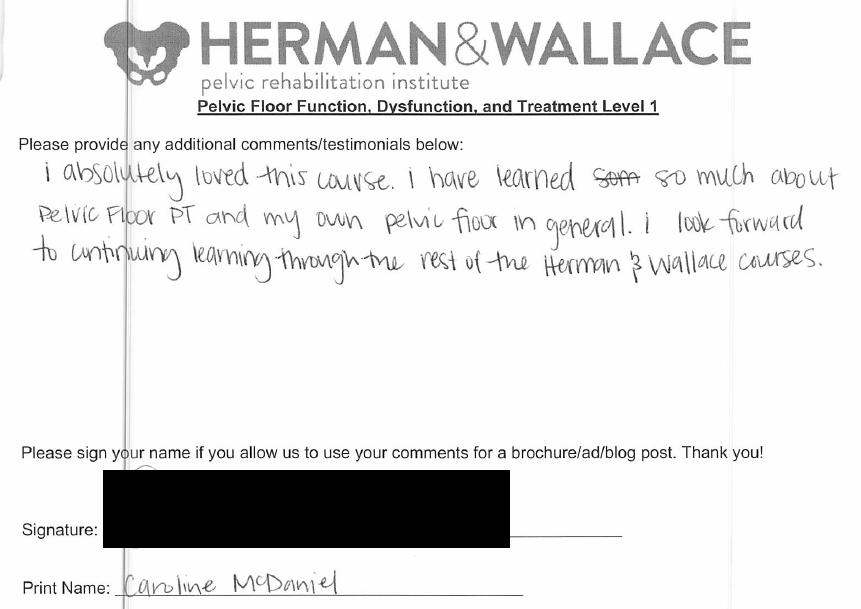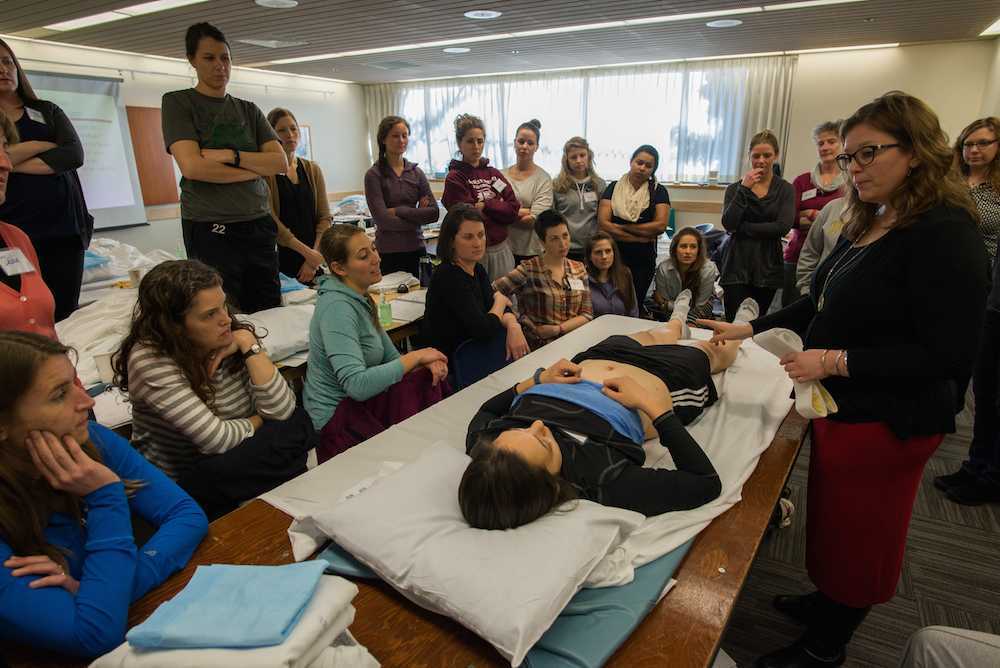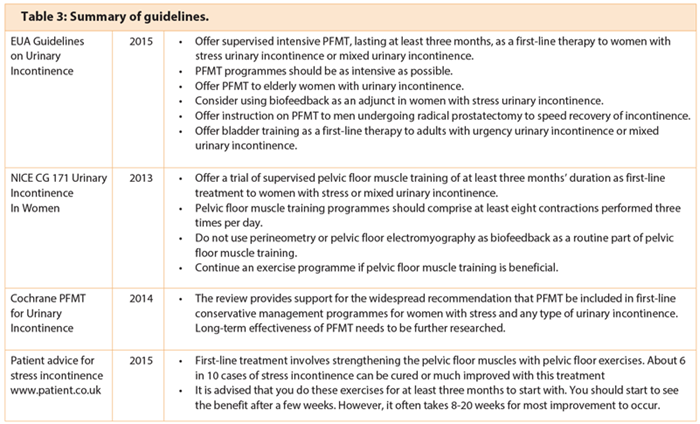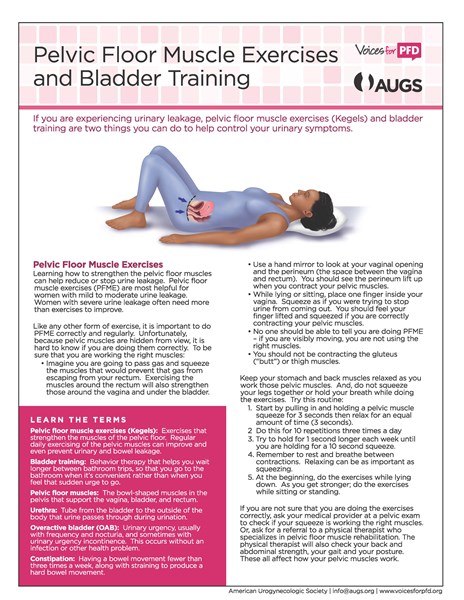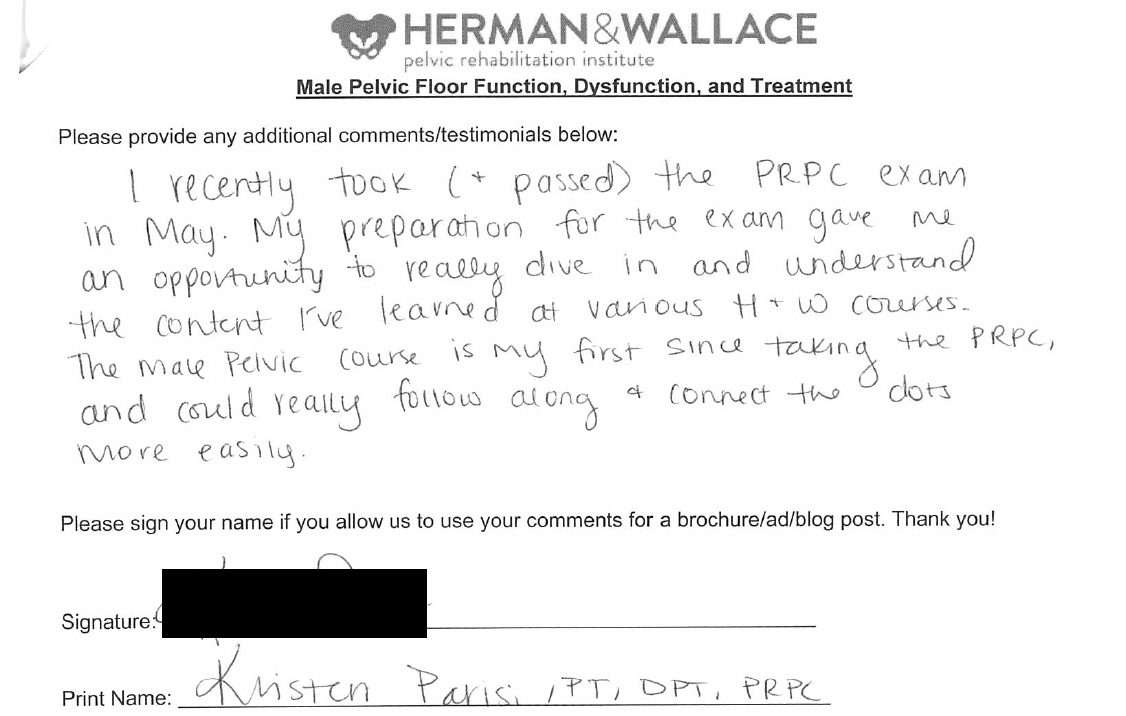During the pelvic examination of women with sexual pain the pelvic floor muscles pfms one of the largest structures in the pelvis should be palpated systematically.
Pelvic floor examination training.
Pelvic floor muscle training exercises are recommended for.
Kegel exercises can help men and women who have problems leaking urine or stool feces.
It is extremely common especially as we age and can result in symptoms of urgency chronic constipation or fecal urinary incontinence.
Because of the location of the pelvic floor muscles the best way to assess and treat them is to work internally.
List appropriate outcome measure tools for urinary incontinence pelvic organ prolapse and pelvic pain 5.
They also support the uterus and bowel large intestine.
Kegel exercises also known as pelvic floor muscle training are designed to strengthen pelvic floor muscles.
You will be given a sheet to cover up and the therapist will be out of the room while you dress or undress much like a regular physical exam at the doctor s.
The guideline was based on survey responses from academicians and clinicians.
This article specifically discusses the results of the academic and clinician survey responses regarding inclusion of pelvic floor muscle examination in entry level dpt curricula.
E was published in 2014.
Pelvic muscle training or kegels is the practice of contracting and relaxing your pelvic floor muscles you may benefit from kegels if you experience urine leakage from sneezing laughing.
The pelvic floor muscles hold up your bladder.
This can be through the vagina in the female or the rectum in the male.
Bladder training and pelvic floor muscle training if appropriate helps 1 out of every 2 to 3 women with urge leakage.
Remember when you have successfully trained your bladder into good habits you need to practice these habits for the rest of your life.
Academicians 97 and clinicians 95 were in agreement that.
Pelvic floor muscle training exercises can help strengthen the muscles under the uterus bladder and bowel large intestine.
Men with urinary stress incontinence after prostate surgery.
Pelvic floor dysfunction is a functional disorder or weakening of the muscles and or nerves of the pelvic floor.
People who have fecal incontinence.
Kegel and pelvic floor exercises.
Using single digit palpation the clinician should assess for changes of the pfms including hypertonicity trigger point formation and muscle shortening.
